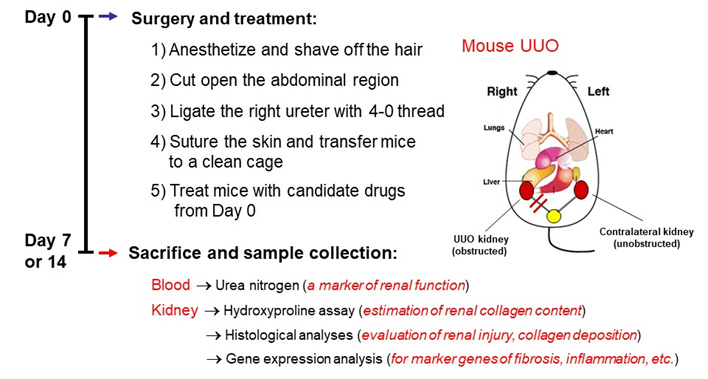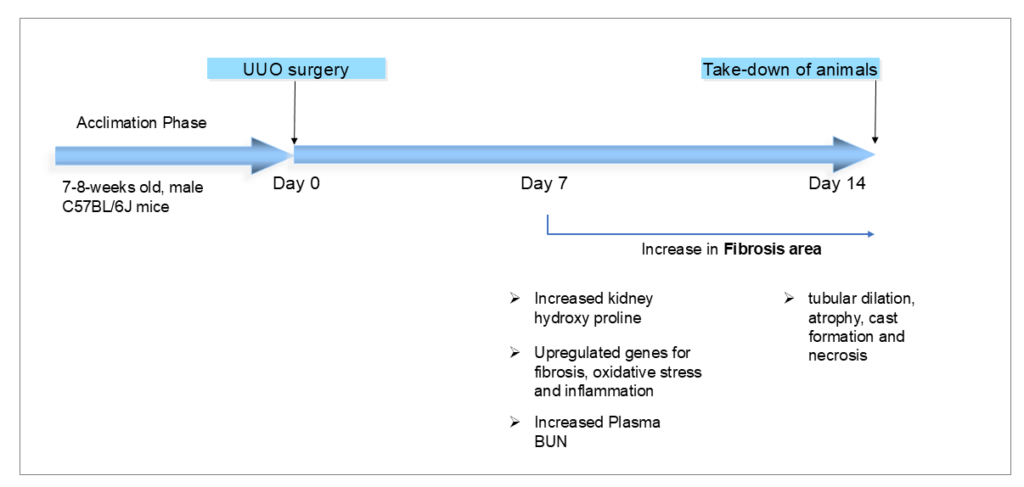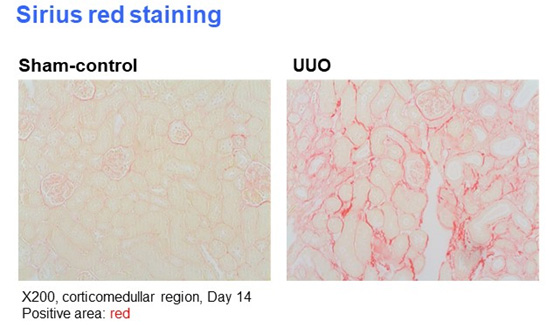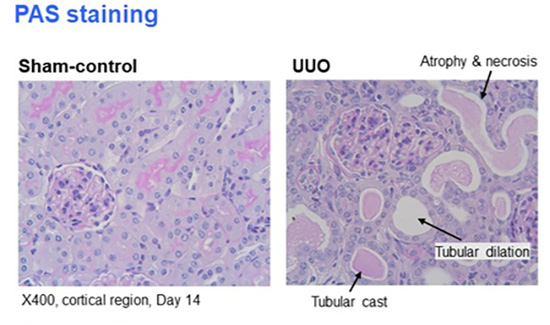SMC MODELS
UUO-induced renal fibrosis model
The UUO-induced renal fibrosis model
The UUO-induced renal fibrosis model (unilateral ureteral obstruction) is a widely used disease model of renal fibrosis and obstructive nephropathy. It shows the same pathological features as in chronic kidney disease (CKD) such as interstitial fibrosis, tubular atrophy, and inflammatory cell infiltration.
How we create the UUO-induced renal fibrosis model
Our UUO model induction process is shown below. The ureter on one side is ligated to induce the disease. The kidney with the obstructed ureter is divided into three sections for analysis: histopathology, biochemistry and gene expression. You will find more detailed information about the different analysis items and key endpoints for the UUO model in the next section.

The UUO-induced renal fibrosis model has a study duration of 2 weeks, which makes this model suitable for in-vivo screening studies of anti-fibrotic drugs indicated for kidney fibrosis.

Analysis items and key endpoints for the UUO-induced renal fibrosis model
Histopathological analysis
PAS staining (for intraluminal cast, tubular dilation, inflammatory foci)
Sirius Red staining (for collagen deposition / fibrosis)
Biochemistry analysis
Hydroxyproline content
Blood Urea Nitrogen (BUN)
Gene expression analysis
a-SMA
TGF-ß
Col1
TIMP1
TNF-a
IL-1ß
MCP-1
Nrf2
HO-1 etc.
Other parameters
Body weight change
Kidney weight
Left picture: The Sirius Red-stained section shows the induction of fibrosis in the cortex of the kidney.
Right picture: The PAS-stained sections show the kidney damage including tubular swelling, cast formation and loss of brush border, which are not observed in normal mice.
ALK5 inhibitor as established positive control compound
The ALK5 Inhibitor acts on TGF-βtype I receptor/Activin Receptor-like Kinase (ALK5), which is a crucial pathway for the progression of fibrosis in the kidneys.
We have evaluated the ALK5 inhibitor in the UUO-induced renal fibrosis model and demonstrated significant improvement in renal fibrosis severity as well as downregulation in fibrosis and inflammation related gene expression. Therefore, it can be utilized as a reference to evaluate the pharmacological efficacy of your drug candidate.
SGLT2 inhibitor (Dapagliflozin) as established positive control compound
The SGLT2 inhibitor, Dapagliflozin, blocks the Sodium-Glucose Cotransporter 2 in the kidneys’ proximal tubules, preventing the reabsorption of filtered glucose.
We have evaluated Dapagliflozin in the UUO model and could show significant improving effects on renal fibrosis. It is available as an alternative reference control.
Other CKD Models
For the pharmacological efficacy evaluation of drugs against CKD and AKI, we also offer the following models:
Adenine Model
Folic Acid Model


